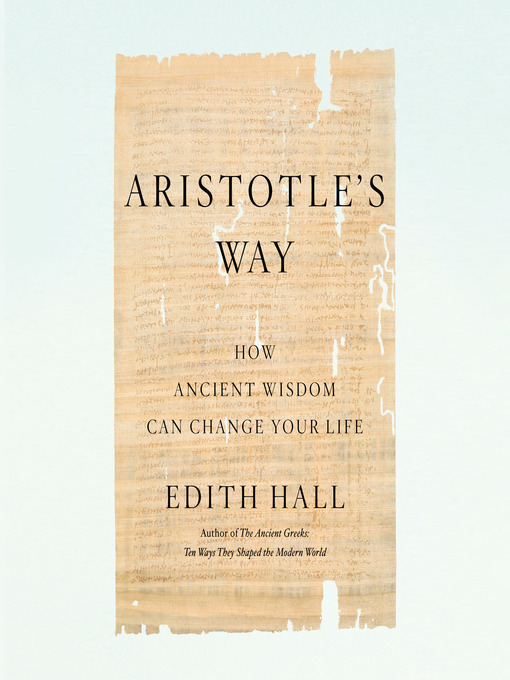Aristotle was the first philosopher to inquire into subjective happiness, and he understood its essence better and more clearly than anyone since. According to Aristotle, happiness is not about well-being, but instead a lasting state of contentment, which should be the ultimate goal of human life. We become happy through finding a purpose, realizing our potential, and modifying our behavior to become the best version of ourselves. With these objectives in mind, Aristotle developed a humane program for becoming a happy person, which has stood the test of time, comprising much of what today we associate with the good life: meaning, creativity, and positivity. Most importantly, Aristotle understood happiness as available to the vast majority us, but only, crucially, if we decide to apply ourselves to its creation—and he led by example. As Hall writes, "If you believe that the goal of human life is to maximize happiness, then you are a budding Aristotelian."
In expert yet vibrant modern language, Hall lays out the crux of Aristotle's thinking, mixing affecting autobiographical anecdotes with a deep wealth of classical learning. For Hall, whose own life has been greatly improved by her understanding of Aristotle, this is an intensely personal subject. She distills his ancient wisdom into ten practical and universal lessons to help us confront life's difficult and crucial moments, summarizing a lifetime of the most rarefied and brilliant scholarship.


